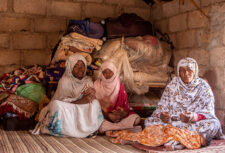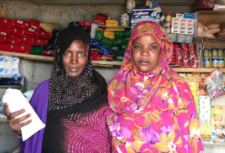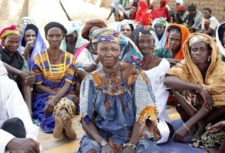Disclaimer: This article is more than 8 years old, and may not include the most up-to-date information or statistics. Please verify information with more recent sources as needed, and if you have any questions contact our Press Office.
3 June 2015
Injustices of Mauritania’s Criminal Justice System – Blog from the trip.
By Sarah Mathewson, Africa Programme Co-ordinator
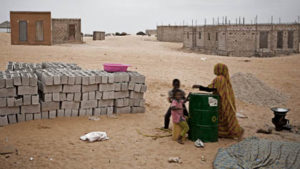
I have just returned from a visit to Mauritania, a central focus of Anti-Slavery International’s Africa Programme.
Through our partner organization ‘SOS-Esclaves’, we met a number of people who have escaped slavery in recent years. While happy to be free from the control of their former masters, these survivors are struggling to make ends meet and remain socially marginalised. Faced with a bureaucratic system that is hostile to recognizing and supporting slavery victims, they do not have the identity cards that would allow them to find official work and their children to enter school, and their legal cases are being met with interminable delays by the courts (read some harrowing stories here).
Our projects support government advocacy on their behalf, legal assistance and the training of SOS-Esclaves’ members to provide regular social support – but the challenges they face are still daunting.
Our visit was also marked by the chilling experience of seeing three anti-slavery advocates in prison. The men were handed a two-year prison sentence in January after leading a peaceful campaign around the south of Mauritania to expose and denounce slavery traditions that prevent people from owning the land they farm. They were convicted of ‘unauthorized assembly’, ‘incitement to rebellion’ and ‘belonging to an illegal organization’ after a trial in December 2014 that lasted less than three weeks – a jarring contrast to the slowness of slavery court cases.
We first saw Biram Dah Abeid (pictured below) and Brahim Bilal from the organization ‘Initiative for the Resurgence of Abolitionism’ (IRA) in prison in Aleg, a small town four hours from Mauritania’s capital city, Nouakchott. While in reasonable health, they were in low spirits, subdued by their permanent indoor confinement (they have not been allowed access to any outdoor space since they were imprisoned) and their isolation from other prisoners.
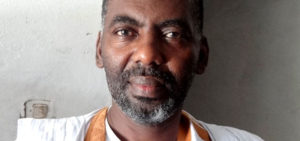
They are desperate to be transferred back to Nouakchott to be close to their families and support base. Members of their families have actually had to relocate to Aleg in order to bring them food every few days, as the prison’s supply is so inadequate. They are challenging their transfer to the Aleg prison on legal grounds – they were arrested and tried in a town closer to Nouakchott, and their appeal would normally take place there. That their appeal will be held in the remote Aleg is highly irregular, and suggests the government wants to keep their case out of the spotlight.
The third anti-slavery advocate, Djiby Sow of the organization ‘Kawtan’, was transferred back to Nouakchott, but only because he became dangerously ill. He spoke of being severely beaten by the Mauritanian police while in custody, and suffering acute pain in his kidneys since then. When the three prisoners embarked on a hunger strike in protest at being denied visits from friends and supporters, Djiby soon succumbed to aches and pains and a fever. He could barely stand.
After being transferred on the third day of the hunger strike, it took weeks for him to have the scan of his kidneys that doctors had recommended. When we saw him a few weeks ago, he was still weak and visibly in poor health, his face drawn with fatigue and his body was covered in itchy rashes. He is deeply distressed at the prospect of having the kidney operation that doctors are urgently recommending within Mauritania, as he has no confidence in the country’s medical system. He is begging the authorities to be allowed to have the operation in a neighbouring country.
It is deeply unjust that three anti-slavery campaigners should be suffering in prison, while every slave-owner in Mauritania walks free. It gives lie to the various government programmes and initiatives created in recent years, purportedly to deal with the ‘vestiges’ of slavery. These, it would seem, actually serve to mask the true extent of slavery and create the illusion of action to address it.
In reality, the Mauritanian government’s pursuit of anti-slavery campaigners stands in stark contrast to the lack of action to investigate, arrest and prosecute slave-owners in the cases brought to their attention by anti-slavery organizations. There are currently over 40 slavery cases before the courts, none of which are progressing. The authorities should focus on pursuing the proper investigation and prosecution of slavery cases, rather than targeting anti-slavery campaigners. Indeed, it should be actively supporting and protecting activists in its efforts to ensure the emancipation of people in any form of slavery.
We will continue to advocate that they do so at every level.
UPDATE:
Good news! On June 26, we learned learned that Djiby Sow has been granted release on bail, pending his appeal; we hope he will be able to seek the medical treatment he needs freely.
